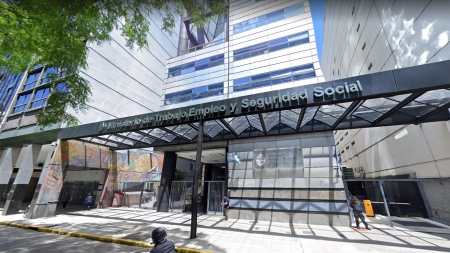Nine out of ten joint agreements achieved improvements in the real salary of their represented workers between September and December 2022, according to a survey released by the Scalabrini Ortiz Center for Economic and Social Studies (CESO).
The entity specified that until August “only 3 of the 10 monitored agreements beat inflation in the course of 2022”, but that in the last four months of the year “there was a process of joint renegotiation thanks to which 6 of the agreements ended the year above the real salary they had in December 2021”.
Those six guilds were those of the Hotel and Gastronomy workers (+15.9% real), short and medium distance Transport (+10.9%), Commerce employees (+6.1%), Construction workers (+2, 6%) and those of Health (1.6%)while the Guaranteed National Minimum Teacher Salary also registered a real year-on-year increase of 1.2%.
CESO indicated that “the union that lost the most in basic salary compared to inflation during 2022 was Truckers”, with a year-on-year drop compared to accumulated inflation of 6.5%.
In this regard, he pointed out that “the joint agreement of Truckers allowed them – with ups and downs – to maintain purchasing power in real terms until the month of June, but then it lost every month with respect to inflation.”
The think tank added that other The unions with real wage losses in relation to inflation in 2022 were Food (-4.8%), Banking (-3.2%) and Metallurgical (-1.7%)for which the recovery in the last part of the year was not enough to compensate for what was lost in the first eight months.
In the case of bank employees, CESO clarified that “they must discuss the salary guideline for this year shortly”, and in the case of truckers “they have expected increases of around 6% per month until June”, and if inflation is located below that percentage “they will thus be able to improve their purchasing power”.
“When analyzing the evolution throughout all of 2022 of the aforementioned unions, it can be seen that the inflationary acceleration in June and July implied that as of August very few unions were above inflation,” and that the subsequent renegotiation ” The situation improved, although what was lost during those months was not recovered”.
CESO recalled that “some unions have agreed to reopen their parities at the beginning of this year”, and in this sense cited that in Commerce “on January 18 they signed the 22.9% salary review” to be paid in two tranches.
Likewise, transport workers currently have an open negotiation and the teachers’ union, together with the banking union, have stipulated new joint negotiations starting this month.
“The key to the improvement in purchasing power is that inflation continues to slow down, something difficult as the government begins to face the resistance of a very entrenched inertial inflation,” he warned.
The entity led by Andrés Asiaín considered that “the objective of closing parities of around 60% could only be applied as of March”although it concluded that the annual negotiations ceased to be “a stable reference”, because “the joint negotiations are open almost permanently and in many cases they are reviewed several times throughout the year”.
















